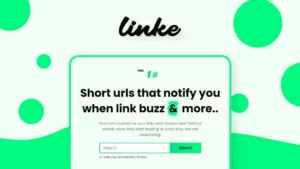Automated marketing streamlines marketing tasks using technology, enhancing efficiency and engagement. It allows businesses to automate emails, manage social media, and personalize customer interactions, ultimately driving growth and improving ROI.
Automated marketing is transforming the landscape of customer engagement and business growth. By leveraging technology to automate repetitive tasks, businesses can not only save time but also enhance the customer experience. In this article, we’ll delve into the core components of automated marketing, explore its numerous benefits, and outline steps to seamlessly integrate this powerful strategy into your business operations.
Understanding Automated Marketing: A Comprehensive Overview
Automated marketing is a technology-driven approach that allows businesses to streamline and optimize their marketing efforts. This methodology involves using software platforms to automate repetitive tasks such as email campaigns, social media posting, and targeted advertising.
What is Automated Marketing?
Automated marketing refers to the automation of marketing actions. Many marketing departments automate tasks such as emails, social media, and other website actions. This enables marketers to focus on more strategic work while ensuring that customers receive timely and relevant communication based on their behaviors and preferences.
Key Components of Automated Marketing
Some components of automated marketing include:
- Email Automation: Sending emails to customers based on their interactions with your brand.
- Lead Scoring: Qualifying potential customers based on their behavior to ensure the most promising leads receive attention.
- Social Media Automation: Scheduling posts and managing interactions on various platforms to maintain a consistent online presence.
Benefits of Automated Marketing
By implementing automated marketing, businesses can enjoy benefits such as improved efficiency, personalized customer interactions, enhanced analytics for decision-making, and saved time. With these tools, marketing teams can focus on strategies that drive engagement and growth.
How Automated Marketing Works
Automated marketing typically operates through a combination of customer relationship management (CRM) systems and email marketing platforms. These tools allow businesses to track customer interactions, segment audiences, and deliver personalized content automatically. Your customers receive the information they need when they need it, leading to a more satisfying experience.
Key Benefits of Automated Marketing for Businesses

Automated marketing offers several key benefits that can significantly enhance business operations and improve customer engagement. By implementing this technology, businesses can save time and increase efficiency while delivering personalized experiences to their customers.
Increased Efficiency
One of the most significant advantages of automated marketing is the ability to perform repetitive tasks quickly and accurately. By automating tasks like email campaigns and social media posts, businesses free up valuable time for their marketing teams to focus on creative strategies.
Consistent Customer Engagement
Automated marketing allows for consistent communication with customers. By scheduling messages and offers to be sent automatically, businesses can ensure that their audience receives timely information without manual input. This consistency helps to build trust and brand loyalty.
Personalized Experiences
With automated marketing, businesses can segment their audience and tailor messages to fit specific customer needs. By analyzing customer behavior, businesses can send targeted emails and offers that resonate with individual preferences, increasing engagement rates.
Improved Analytics and Insights
Automated marketing platforms provide detailed analytics that help businesses understand campaign performance. By tracking open rates, click-through rates, and conversions, organizations can make data-driven decisions to improve future campaigns.
Cost Savings
Implementing automated marketing can lead to significant cost savings. By reducing the labor needed for manual tasks and improving marketing effectiveness, businesses can allocate resources more efficiently and ultimately increase their return on investment (ROI).
Steps to Implement an Automated Marketing Strategy
Implementing an automated marketing strategy can significantly enhance your business’s efficiency and engagement with customers. Here are the steps to effectively launch this strategy.
1. Define Your Goals
Start by setting clear objectives for what you want to achieve with automated marketing. Whether it’s increasing email engagement, nurturing leads, or boosting sales, having defined goals helps shape your strategy.
2. Identify Your Audience
Understanding your target audience is crucial. Use tools to segment your audience based on behaviors, interests, and demographics. This will allow you to personalize your marketing efforts and reach the right people.
3. Choose the Right Tools
Select a marketing automation platform that meets your needs. Look for features such as email marketing, social media management, and analytics. Popular tools include HubSpot, Mailchimp, and Marketo.
4. Create a Content Calendar
Plan your marketing campaigns with a content calendar. Schedule your emails, social media posts, and other content to ensure consistency. This helps keep your audience engaged and informed.
5. Monitor and Optimize
Once your automated marketing strategy is in place, regularly monitor its performance. Use analytics to track open rates, click rates, and conversions. Based on the data, make necessary adjustments to optimize your campaigns for better results.
Best Tools for Effective Automated Marketing

Choosing the right tools is crucial for successful automated marketing. Here are some of the best tools available that can help streamline your marketing efforts.
1. HubSpot
HubSpot is a complete marketing platform that offers a wide range of tools for automated email marketing, lead management, and analytics. Its user-friendly interface makes it easy for businesses of all sizes to create and manage marketing campaigns effectively.
2. Mailchimp
Mailchimp is popular for its powerful email marketing features. This tool allows users to design, send, and analyze email campaigns effortlessly. Its automation features help you send personalized messages based on customer behavior.
3. Marketo
Marketo is a robust marketing automation platform that provides advanced features like lead scoring, automated workflows, and detailed analytics. It is particularly beneficial for larger businesses looking to optimize their marketing strategies.
4. ActiveCampaign
ActiveCampaign combines email marketing, CRM, and marketing automation functionalities. It enables businesses to create targeted campaigns and provides user behavior tracking, ensuring that the right message reaches the right audience.
5. GetResponse
GetResponse offers comprehensive marketing solutions, including email marketing, landing pages, and webinars. Its automation features allow users to build advanced autoresponder sequences, making it ideal for nurturing leads.
Measuring the Success of Your Automated Marketing Campaigns
Measuring the success of your automated marketing campaigns is essential to ensure that your strategies are effective. Here are key metrics and methods to evaluate your campaigns.
1. Track Key Performance Indicators (KPIs)
Identify the KPIs that matter most to your campaign, such as open rates, click-through rates (CTR), conversion rates, and ROI. These metrics provide valuable insights into how well your campaigns are performing.
2. Use A/B Testing
A/B testing allows you to compare two versions of a marketing message. By testing different subject lines, content, or calls to action, you can determine which version resonates best with your audience.
3. Analyze Customer Engagement
Monitoring customer engagement is important to understand how users interact with your campaigns. Look for trends in user behavior, such as email engagement and social media interactions, to gauge interest and effectiveness.
4. Measure Customer Retention
Assessing customer retention rates helps you understand whether your automated marketing campaigns are fostering loyalty. High retention rates often indicate that your messages are relevant and valuable to your audience.
5. Utilize Analytics Tools
Use analytics tools, such as Google Analytics or your marketing platform’s built-in analytics, to gather data on campaign performance. These tools will help you track user activity, conversion paths, and overall effectiveness.
In Conclusion: The Power of Automated Marketing
Automated marketing is a game changer for businesses looking to engage customers more effectively and save time. By implementing an automated strategy, you can enhance efficiency, deliver personalized experiences, and ultimately drive growth.
Measuring the success of your campaigns is essential. By monitoring key metrics and customer engagement, you can adjust your strategy for better results.
With tools available today, automating your marketing efforts has never been more accessible. Embrace automation to stay competitive and create lasting relationships with your customers.
FAQ – Frequently Asked Questions about Automated Marketing
What is automated marketing?
Automated marketing is a technology-driven approach to streamline marketing tasks, such as emailing and social media posting, to save time and enhance engagement.
How can automated marketing benefit my business?
By automating tasks, your team can focus on creative strategies while achieving consistent communication and personalized experiences for your customers.
What tools are best for automated marketing?
Some popular tools include HubSpot, Mailchimp, Marketo, ActiveCampaign, and GetResponse, which offer various features for marketing automation.
How can I measure the success of my automated marketing campaigns?
You can track key metrics like open rates, click-through rates, and conversion rates, and use A/B testing to optimize your email campaigns.
Is automated marketing suitable for small businesses?
Yes, automated marketing is highly beneficial for small businesses, allowing them to compete effectively and engage customers without excessive resources.
What should I focus on when starting automated marketing?
Start by defining your goals, identifying your audience, choosing the right tools, and creating a content calendar to organize your campaigns.




